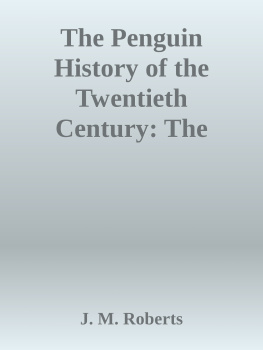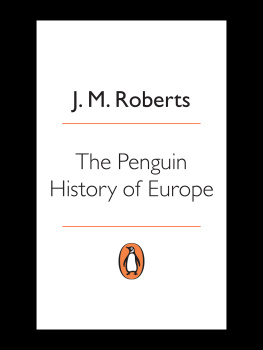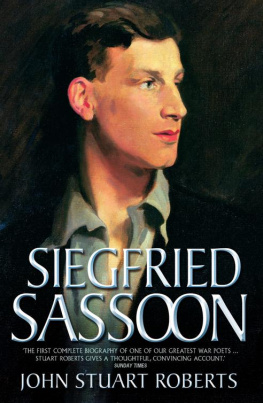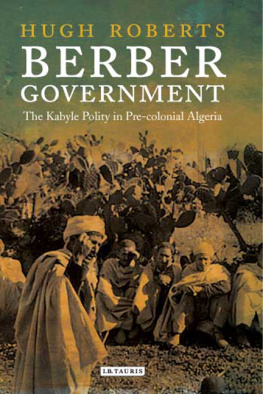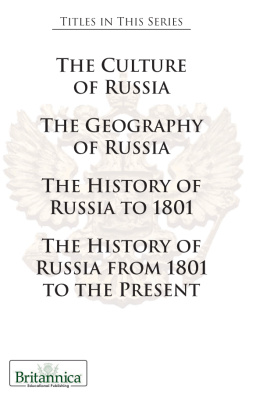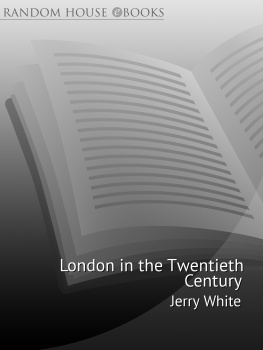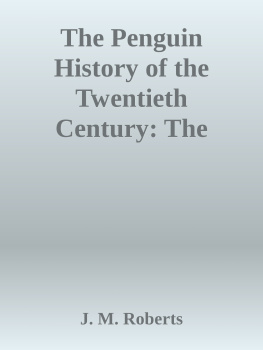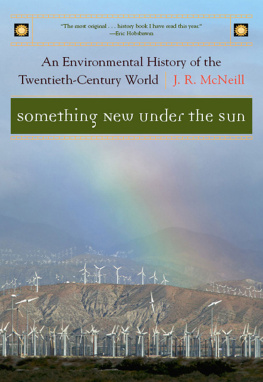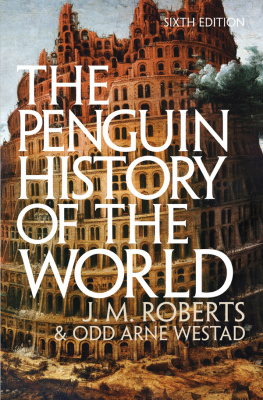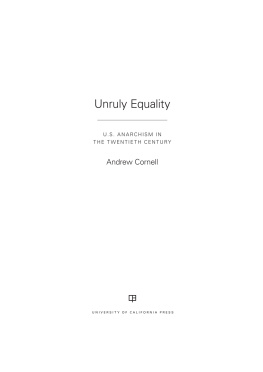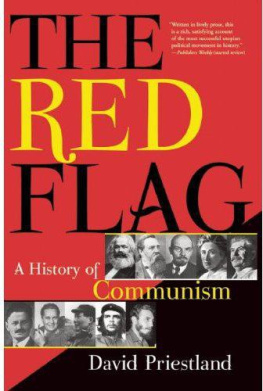PENGUIN BOOKS
THE PENGUIN HISTORY OF THE TWENTIETH CENTURY
A work of great breadth that deserves the widest reading because it is about one of the most important historical stories of all namely what happened in the most dynamic and recent century of humankind's journey through time' Paul Kennedy, The New York Times Book Review
The best of the modern histories is John Roberts's [Penguin History of the] Twentieth Century which triumphantly overcomes the difficulties of studying an age that the author has experienced. Roberts focuses on the Europeanization of the world but moves with authority across all areas of the globe' Kevin Sharpe, Sunday Times
Wittily written, with dramatic narrative power' Henry Kisor, Chicago Tribune
Roberts's new book is the best one-volume history of the world during the twentieth century so far. It captures the bewildering energy and pathos of a century that has been horrific, innovative, and inspiring. By describing the pivotal events and personalities that have shaped our present, [The Penguin History of the] Twentieth Century helps prepare us for the century ahead' David Shi, Christian Science Monitor
Lively and accessible Roberts shows how the pace of change, which had already quickened considerably in the nineteenth century, accelerated by leaps and bounds between 1900 and 1999' Brendan Simms, The Times Higher Education Supplement
A brilliant and provocative interpretation of the last 100 years of human history' Pauric Travers, Sunday Tribune
ABOUT THE AUTHOR
J. M. Roberts was born in Bath and educated at Taunton School and Keble College, Oxford. After National Service he returned to Oxford in 1950 and became a Fellow of Magdalen the following year. In 1953 he went to the United States as Commonwealth Fund Fellow, the first of several visits to America during which he held, among other posts, those of Member of the Institute for Advanced Study, Princeton (1960), and visiting professorships at the University of South Carolina and Columbia University, New York. He was a Fellow and Tutor of Merton College, Oxford, from 1953 to 1979. From 1979 to 1985 he was Vice-Chancellor of Southampton University. He then returned to the Wardenship of Merton in 1985, from which he retired in 1994. In 1996 he was appointed CBE for services to education and history.
Dr Roberts edited the popular and successful partwork publication Purnells History of the Twentieth Century. From 1967 to 1976 he was joint editor of the English Historical Review. He is the author of Europe 1880 1945, The Mythology of the Secret Societies, The Paris Commune from the Right, Revolution and Improvement and The French Revolution. He is General Editor of the New Oxford History of England and the Shorter Oxford History of the Modern World. In 1985 BBC2 transmitted the thirteen-part historical series The Triumph of the West, which Dr Roberts wrote and presented, and later in the year he published his book of the same title. He was historical adviser to the successful recent BBC television series People's Century.
Dr Roberts was also the author of The Penguin History of Europe and The Penguin History of the World. Dr Roberts died in May 2003.
J.M. ROBERTS
The Penguin History of the Twentieth Century
THE HISTORY OF THE WORLD, 1901 TO THE PRESENT

PENGUIN BOOKS
PENGUIN BOOKS
Published by the Penguin Group
Penguin Books Ltd, 80 Strand, London WC2R 0RL, England
Penguin Putnam Inc., 375 Hudson Street, New York, New York 10014, USA
Penguin Books Australia Ltd, 250 Camberwell Road, Camberwell, Victoria 3124, Australia
Penguin Books Canada Ltd, 10 Alcorn Avenue, Toronto, Ontario, Canada M4V 3B2
Penguin Books India (P) Ltd, 11 Community Centre, Panchsheel Park, New Delhi 110 017, India
Penguin Books (NZ) Ltd, Cnr Rosedale and Airborne Roads, Albany, Auckland, New Zealand
Penguin Books (South Africa) (Pty) Ltd, 24 Sturdee Avenue, Rosebank 2196, South Africa
Penguin Books Ltd, Registered Offices: 80 Strand, London WC2R 0RL, England
www.penguin.com
First published as Twentieth Century by Allen Lane The Penguin Press 1999
Published under the present title in Penguin Books 2000
Copyright J. M. Roberts,1999
All rights reserved
The moral right of the author has been asserted
Except in the United States of America, this book is sold subject to the condition that it shall not, by way of trade or otherwise, be lent, re-sold, hired out, or otherwise circulated without the publisher's prior consent in any form of binding or cover other than that in which it is published and without a similar condition including this condition being imposed on the subsequent purchaser
ISBN: 978-0-14-192849-4
... The General added a very wise remark.
Look here, you're always wanting to get things done, he said to his companion reproachfully. And I admire you for it. But you ought to try thinking in historical terms for once.
Robert Musil, The Man without Qualities
Contents
List of Maps
Foreword
There are great and obvious objections to contemporary history, Macaulay once said, thinking of the events of his own lifetime. human beings (whether directly or by creating new circumstances in which they had to live their lives) in this century, and to do so in a reasonably short book. The size of that task means that this can only be a reconsideration of facts established by others and not a work of original research. I hope, though, that it embodies considered and careful reflection.
Inevitably, the hardest decisions have been over the question of what to leave out. The book is intended to be a history of the world in a given period, yet not only can it not be factually complete, it must leave some history out altogether. It does not pretend to provide complete or even cover, any more than a guidebook pretends to give information about every part of the region it describes in uniform or equal measure. Take, for instance, the history of the Islamic republic of the Comoros Islands, which is by no means a long one. In 1975 the islands emerged from French colonial rule and became a sovereign independent state, a member of the United Nations on the same footing as all other members. In the twenty-four years since independence there are said to have been no fewer than eighteen coups d'tat (by no means all successful), three of its four presidents have died in office (one by assassination), and French forces have twice returned to stabilize things. This is evidently a history mouvement even by the standards of many post-colonial countries. Small though the republic is, moreover (its population is less than 700,000), it has had to face a problem of attempted secession (by one island that appealed to be returned to French jurisdiction unsuccessfully; France declined) and has experienced in local forms many of the most challenging historical trends of recent times dependence on a narrow range of agricultural exports, rapid population growth, decolonization, modernization, Islamism. Its history, therefore, is not only turbulent and complex, but, in a certain light, exemplary and revealing of currents transcending its shores. Yet the Comoros Islands are not mentioned on any later page of this book. They do not impinge enough on its concerns, and in this resemble, I am afraid, many communities whose history has had to be set aside here, not as beneath the consideration of history (every human creation or phenomenon has its own history that demands and is worthy of proper study) but because their story neither illuminates nor contributes to the general themes of this particular book.

